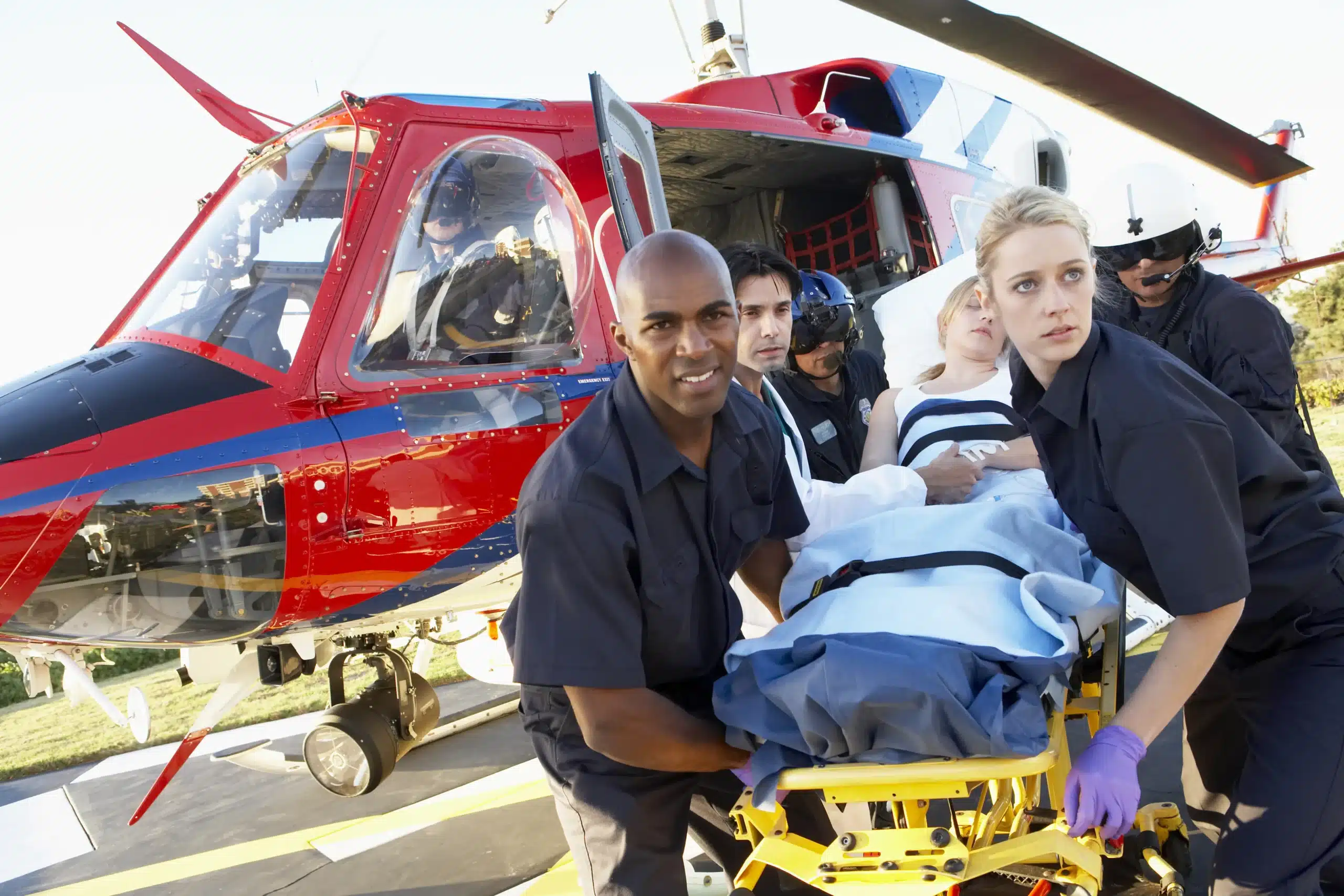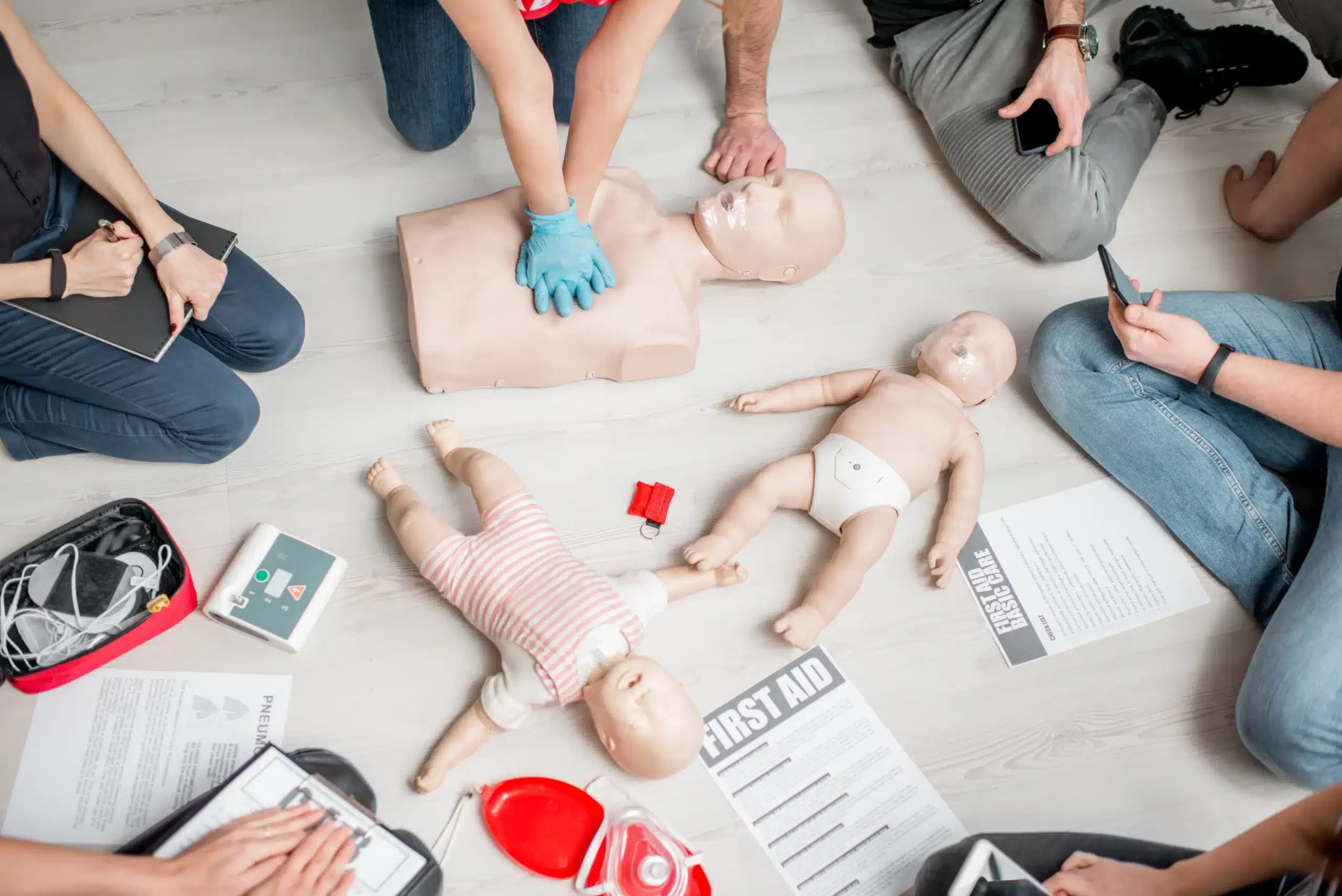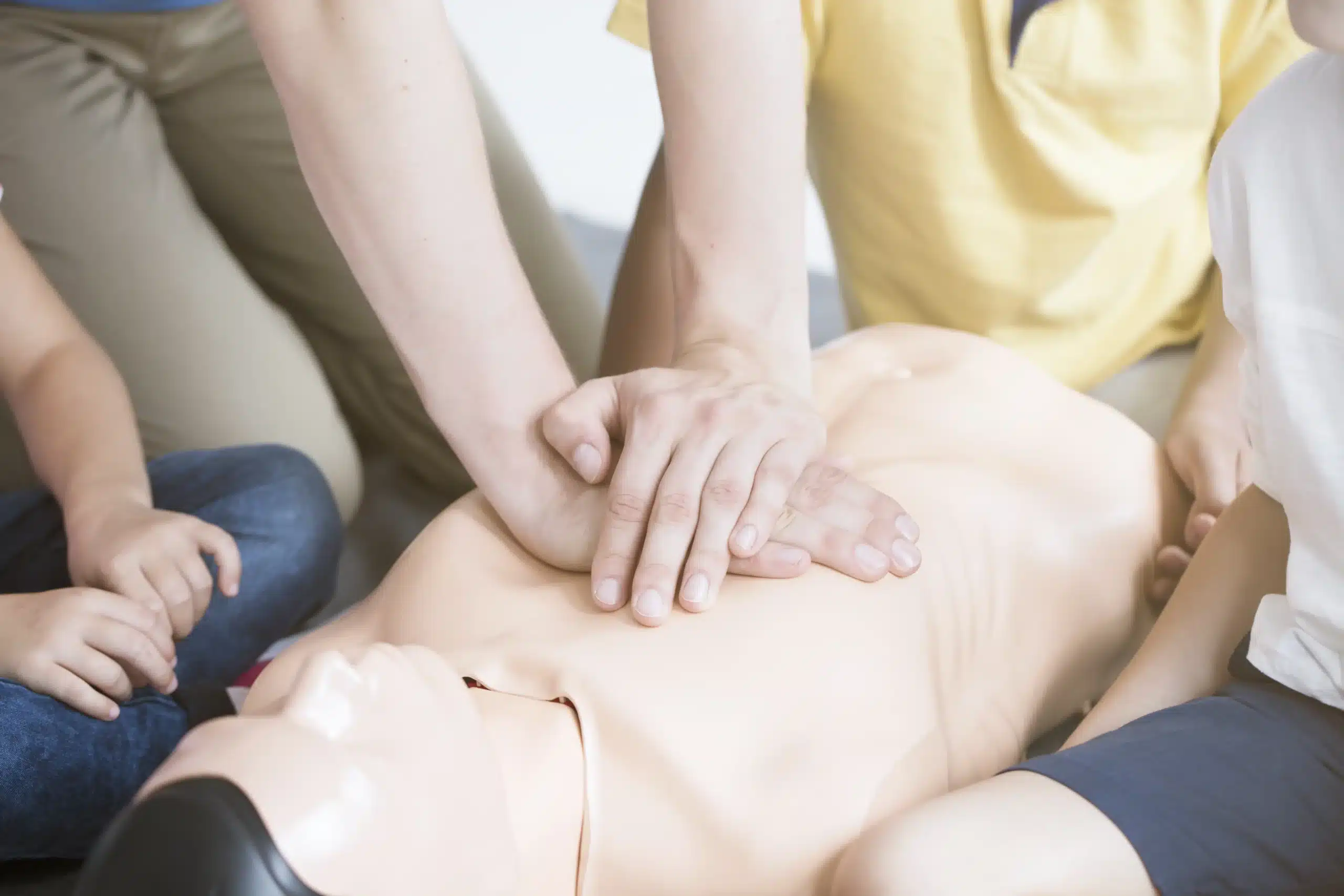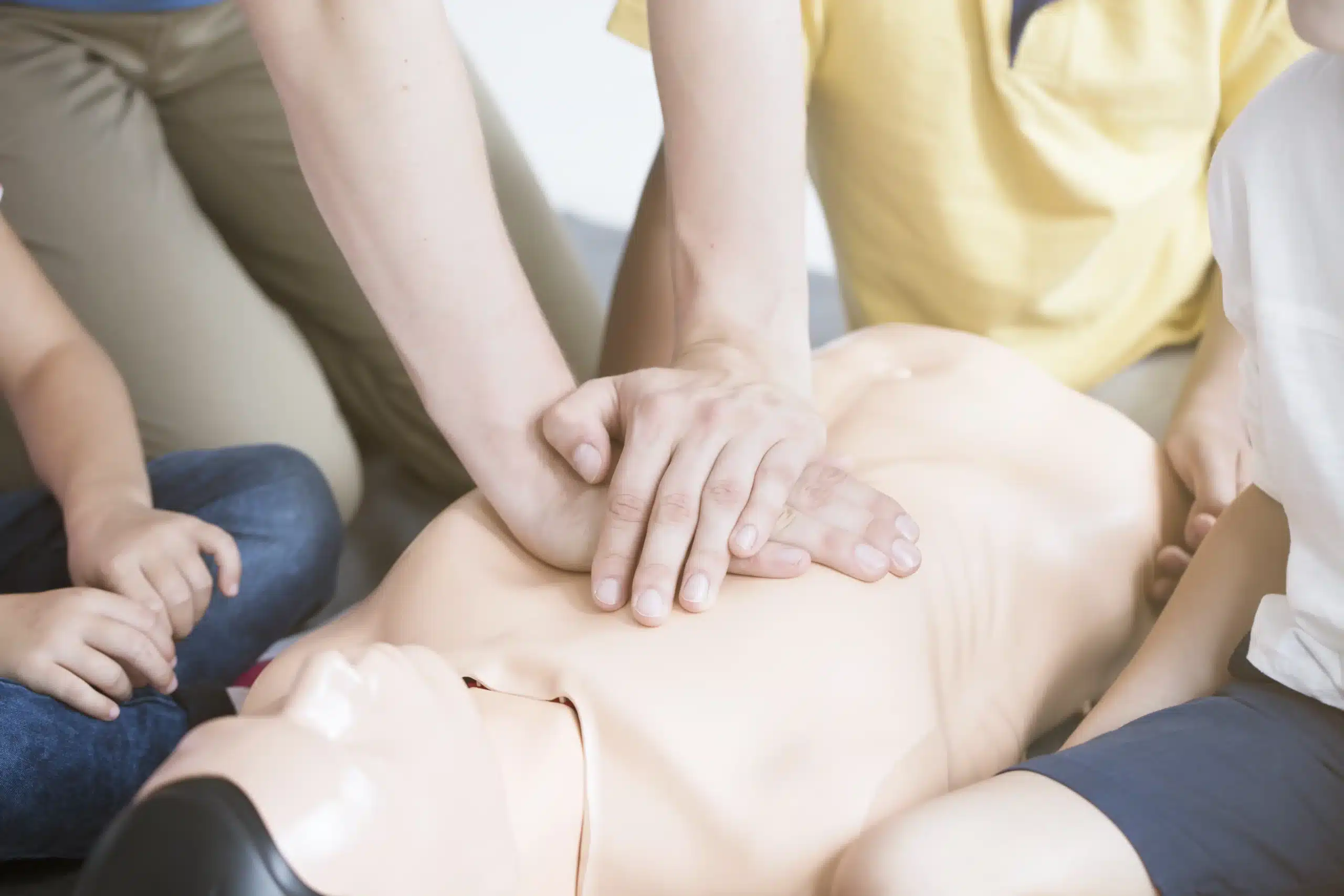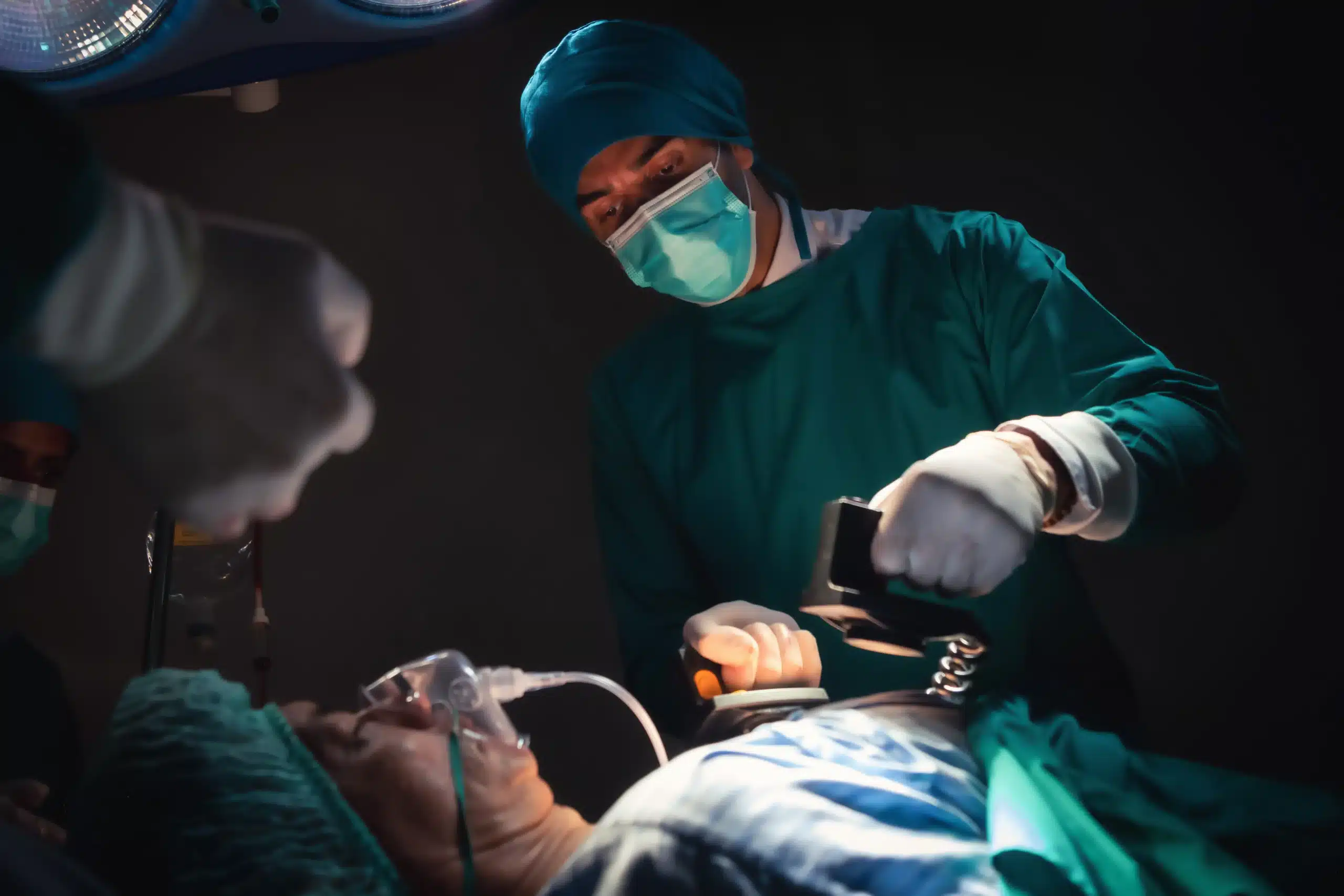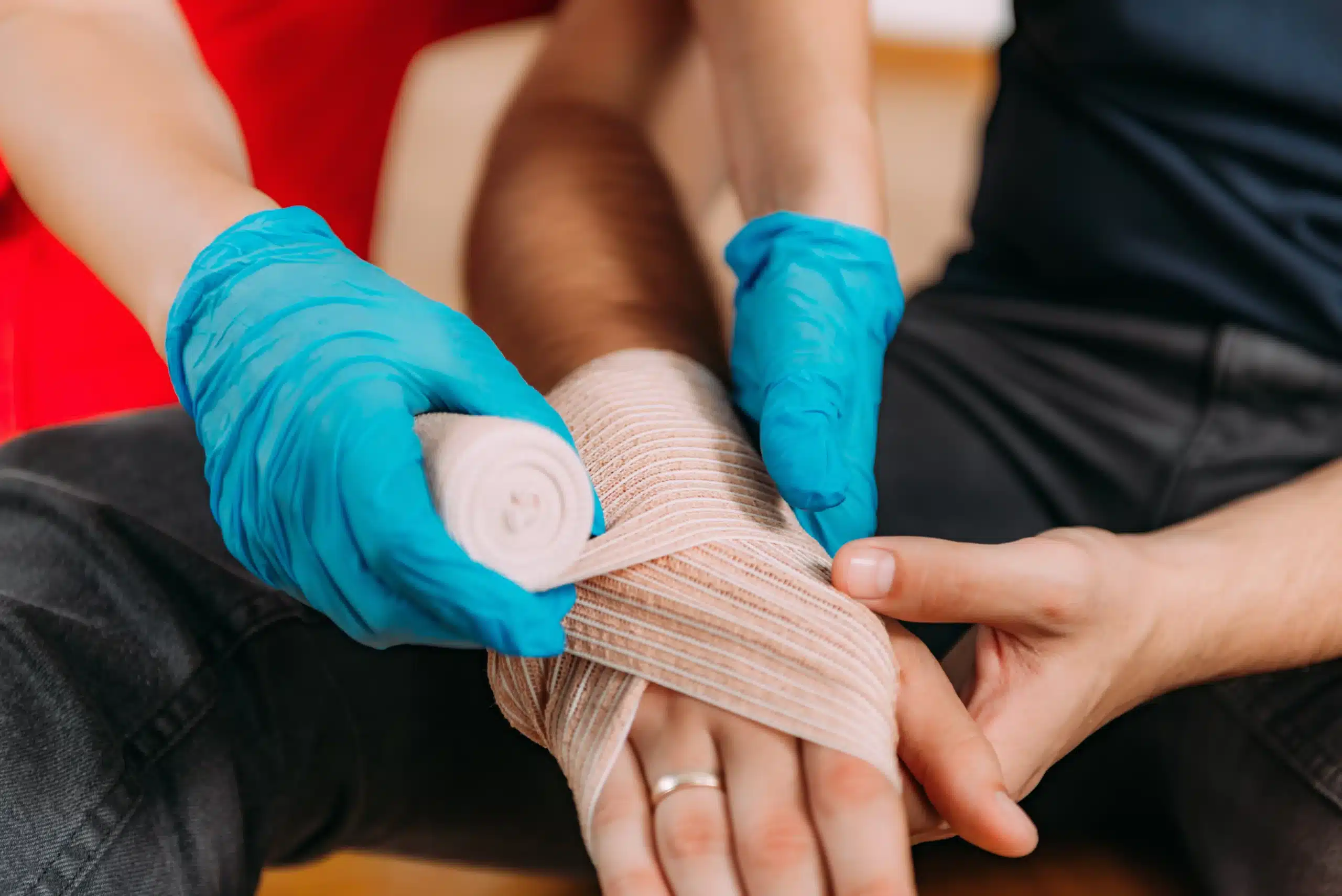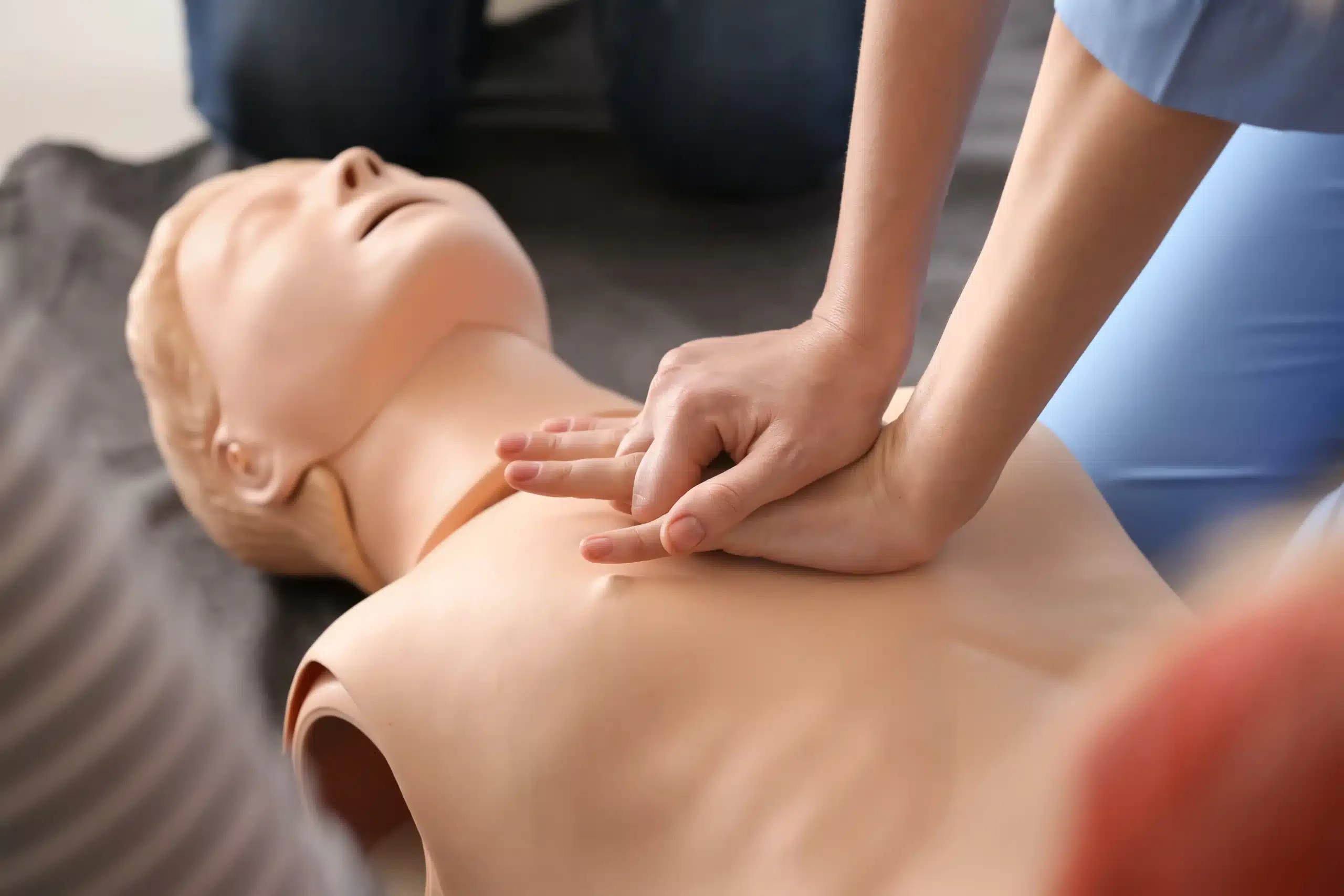Seconds matter in a medical emergency. As a healthcare provider in Saratoga, you’re dedicated to providing the best possible care, and that includes being prepared for the unexpected. But traditional CPR training often lacks the ongoing practice needed to maintain truly life-saving skills. Resuscitation Quality Improvement (RQI) is changing the game. RQI in Saratoga offers a dynamic approach to CPR training, emphasizing short, frequent practice sessions and immediate feedback to keep your skills sharp. This article will explore the benefits of RQI, compare it to traditional methods, and show you how it’s making a difference in Saratoga healthcare. We’ll also discuss the cost, value, and implementation of RQI, providing you with the knowledge you need to elevate your emergency response capabilities.
Key Takeaways
- RQI keeps CPR skills sharp. Frequent, short practice sessions fit easily into busy schedules and provide the consistent reinforcement needed for confident and effective performance.
- RQI improves patient care. Studies link RQI training to better CPR quality and higher survival rates, making it a valuable investment for healthcare providers and facilities.
- Los Gatos CPR Classes makes RQI training accessible. They offer a range of RQI programs in Saratoga with a low price guarantee and flexible scheduling options.
What is RQI and How Does it Benefit Saratoga Healthcare Providers?
What is RQI?
The Resuscitation Quality Improvement (RQI) program represents a significant shift from traditional CPR training. Developed by the American Heart Association (AHA), RQI uses a subscription-based model and frequent, low-dose practice sessions to combat the typical drop-off in skills after initial CPR certification. This innovative approach focuses on maintaining high-quality CPR skills through regular practice on a Simulation Station, which provides immediate feedback to help you refine your technique. Think of it as a gym membership for your life-saving skills, ensuring you’re always ready to respond effectively in an emergency. Los Gatos CPR Classes offers the RQI program to help healthcare professionals stay at the top of their game.
Benefits for Local Healthcare Professionals
RQI offers several advantages for healthcare providers in Saratoga. The program’s emphasis on short, frequent practice sessions makes it easier to fit into busy schedules, minimizing disruption to your workday. The real-time feedback provided by the Simulation Station helps you identify areas for improvement and build confidence in your abilities. Studies show RQI participants demonstrate improved CPR quality, including better chest compression fraction and ventilation techniques, leading to increased confidence and better patient outcomes during cardiac arrest events. For Saratoga healthcare providers, investing in RQI means investing in better patient care and peace of mind. Learn more about our low price guarantee and how it makes high-quality training accessible. Contact us today to discuss how RQI can benefit your team.
Available RQI Programs in Saratoga
Los Gatos CPR Classes offers a variety of RQI programs to meet the diverse needs of healthcare professionals in Saratoga, San Jose, and Los Gatos. These programs cover a range of certifications, ensuring you can find the right fit for your specialization and career goals. We offer RQI courses for BLS, ACLS, PALS, and NRP certifications. Contact us today to learn more about our RQI programs and how they can benefit you.
BLS RQI
The BLS RQI program focuses on the foundational skills of CPR for healthcare providers. It’s a subscription-based program through the American Heart Association designed to combat skill decline after initial training. This convenient and flexible approach allows you to maintain your BLS credentials and stay up-to-date with the latest guidelines. Learn more about our BLS RQI program.
ACLS RQI
The ACLS RQI program advances CPR training further, covering advanced cardiovascular life support techniques. Using a low-dose, high-frequency model, you’ll refresh your skills quarterly. Successful completion earns you an eCredential verifying your competence in high-quality CPR, as recognized by the American Heart Association. This program is essential for healthcare professionals who manage cardiac arrest and other cardiovascular emergencies. Explore our ACLS RQI course to enhance your skills.
PALS RQI
PALS RQI focuses on pediatric advanced life support, equipping providers with the skills to respond to emergencies involving infants and children. The RQI model has been shown to increase provider confidence and improve performance in critical skills like compressions and ventilation. This program is crucial for anyone working in pediatrics or regularly interacting with young patients.
NRP RQI
The NRP RQI program covers neonatal resuscitation, providing specialized training for healthcare professionals involved in the care of newborns. This program utilizes simulation-based mastery learning with real-time feedback, ensuring you develop and maintain the skills necessary to provide effective resuscitation in critical situations. Our NRP RQI training provides comprehensive preparation for neonatal emergencies.
RQI vs. Traditional CPR Training in Saratoga
RQI represents a significant shift from traditional CPR training methods. This section explores the key differences and why RQI may be a better fit for Saratoga healthcare providers.
Training Frequency and Duration
Traditional CPR training typically involves a comprehensive course with recertification every two years. While this covers essential material, skills can decline between renewals. RQI addresses this with frequent, short training modules completed each quarter. This consistent practice helps maintain proficiency in life-saving CPR techniques. The American Heart Association supports this approach, emphasizing regular refreshers to ensure high standards of care. This distributed practice model helps reinforce skills over time, making recall more automatic during real emergencies.
Real-Time Feedback and Skill Assessment
Traditional CPR courses often rely on instructor observation, which can be subjective. RQI uses advanced simulation technology. Laerdal Medical’s Simulation Station provides real-time, audiovisual feedback during practice. This immediate assessment allows providers to identify and correct technique deficiencies, leading to more effective CPR. This objective feedback helps build confidence and ensures consistent application of best practices.
Flexibility and Convenience
For busy healthcare professionals in Saratoga, finding time for training can be challenging. RQI’s flexible format makes it easier to fit training into demanding schedules. Short, regular sessions can be completed at the provider’s convenience. This convenient approach improves CPR competency and reduces the burden on facilities scheduling traditional training. The American Heart Association designed RQI with busy providers in mind, offering a more concise and convenient way to master and maintain essential CPR skills. This allows healthcare systems to maintain compliance and ensure their staff are always ready to respond effectively.
Key Features of Saratoga RQI Training
RQI training boasts several key features that set it apart from traditional CPR certification courses. These features work together to create a more effective and convenient learning experience for healthcare professionals in Saratoga.
Low-Dose, High-Frequency Learning
Traditional CPR training often involves lengthy, infrequent sessions. RQI takes a different approach with low-dose, high-frequency learning. Instead of one long session every two years, you’ll engage in shorter, more frequent practice. This approach, recommended by the American Heart Association, reinforces skills and improves retention. Think of it like regular exercise—short bursts of activity, consistently applied, build strength and endurance.
Simulation-Based Mastery Learning
RQI training uses simulation stations to create realistic scenarios. These stations provide real-time feedback, allowing you to practice and receive immediate guidance. This hands-on, simulation-based approach promotes mastery learning, ensuring you can perform correctly under pressure. Laerdal Medical discusses how this technology enhances learning.
Quarterly Training
With RQI, you’ll refresh your skills every quarter. This consistent practice helps maintain proficiency, ensuring you’re always prepared for emergencies. This quarterly training model replaces the traditional two-year certification cycle, offering more consistent skill maintenance.
Real-Time Audiovisual Feedback
The simulation stations in RQI training provide real-time audiovisual feedback. This immediate feedback helps you identify areas for improvement and refine your technique. You’ll receive guidance on chest compression depth, rate, and recoil, ensuring effective CPR performance. The RQI program overview details this feedback mechanism.
eCredential Verification
Upon completion of your RQI training, you’ll receive an eCredential. This digital credential verifies your CPR competency and offers a convenient way to demonstrate your qualifications. This readily accessible eCredential provides a verifiable record of your training.
RQI’s Impact on Patient Outcomes in Saratoga
RQI training has a significant impact on patient outcomes, especially in time-sensitive situations like cardiac arrest. Let’s explore some of the key benefits.
Improved CPR Quality and Provider Confidence
Studies show that the Resuscitation Quality Improvement (RQI) model significantly improves healthcare providers’ confidence in their CPR skills. Providers using RQI demonstrate better compression and ventilation techniques, often needing fewer attempts to achieve high-quality CPR. This increased confidence can be a game-changer when seconds count. For a deeper dive into RQI’s impact, check out this resource on improved resuscitation quality. This translates directly to more effective patient care during emergencies.
Higher Chest Compression Fraction
Implementing the RQI program is linked to better clinical CPR quality, especially regarding chest compression fraction during in-hospital cardiac arrests. Data reveals a jump from an average of 83% pre-RQI to 93% post-RQI. This increase in chest compression fraction can significantly impact patient survival rates. A study published in Resuscitation further explores these findings, highlighting how effective the program is at improving resuscitation efforts.
Maintaining Skills
One of the biggest challenges with traditional CPR training is the rapid decline of skills over time. RQI tackles this head-on with a subscription-based model that encourages more frequent practice. Consistent practice is key to confident and effective CPR delivery. RQI FAQs offer more details on how the program helps maintain these crucial skills, ensuring healthcare providers stay sharp and ready to deliver effective CPR when needed.
Cost and Value of RQI Training in Saratoga
RQI training offers significant value for healthcare facilities, but it’s essential to understand the costs and how RQI provides a return on that investment. Let’s explore the cost structure and value proposition of RQI training in Saratoga.
Subscription Model Benefits
RQI uses a subscription model, offering several advantages over traditional CPR training. Instead of a large upfront cost every two years, RQI spreads the cost into smaller quarterly payments. This predictable budgeting allows facilities to forecast training expenses more accurately. The subscription model also ensures continuous access to the latest training materials and updates, keeping your team current with resuscitation guidelines. This ongoing reinforcement is crucial for maintaining proficiency and confidence in emergencies.
Discounts and Promotions
Many RQI providers, including Los Gatos CPR Classes, offer discounts for group subscriptions and other promotions. Contact your chosen provider to see what cost savings are available. Bundling RQI subscriptions with other essential training can also lead to significant discounts. Explore all available options to maximize your training budget.
ROI for Healthcare Facilities
The return on investment (ROI) for RQI goes beyond immediate cost savings. While the subscription model and potential discounts contribute to a lower overall cost, the real value lies in improved patient care and outcomes. RQI’s low-dose, high-frequency training leads to increased provider confidence and better performance during resuscitation events, as shown in studies on the impact of RQI. This translates to better patient outcomes and potentially reduces the risk of adverse events. Shorter, more frequent training sessions minimize disruptions to patient care, allowing staff more time for their primary responsibilities. This increased efficiency and improved patient care contribute significantly to the overall ROI of RQI training. Guthrie offers more information on the benefits of RQI for healthcare facilities.
Implement RQI in Saratoga Healthcare Facilities
Integrate with Existing Training
The Resuscitation Quality Improvement (RQI) program fits easily into existing training protocols in healthcare facilities. It’s a subscription-based program from the American Heart Association (AHA) that addresses the common problem of skills fading quickly after initial training. RQI offers a convenient way for healthcare staff to get and keep their AHA credentials, ensuring they’re always ready to perform high-quality CPR. This integration improves the training experience and promotes ongoing competency among healthcare providers. Learn more about how RQI integrates with existing systems.
Overcome Implementation Challenges
Bringing RQI into a healthcare setting can have its challenges. Many healthcare professionals have misconceptions about CPR, which can make training and implementation difficult. Brian Eigel, COO of RQI Partners, emphasizes the importance of correcting these misconceptions and improving CPR skills across the board. By focusing on education and awareness, healthcare facilities can better prepare their staff for RQI, ultimately leading to improved patient outcomes. For further insights, read about common CPR misconceptions and their impact.
Technology and Support
RQI uses technology to improve training and support healthcare providers. The RQI eCredential system confirms that participants demonstrate the right CPR skills through short, regular training sessions. This approach ensures staff are not only trained but also regularly assessed. The program’s Simulation Stations provide real-time feedback, allowing staff to correct and improve CPR techniques immediately. This technological support is essential for maintaining high standards of care. Explore the technology behind RQI for a deeper understanding.
Find RQI Training in Saratoga
Finding the right RQI training program is crucial for healthcare providers in Saratoga who want to stay current on the latest CPR techniques. This section explores several options for accessing RQI training in the area.
Los Gatos CPR Classes
Los Gatos CPR Classes offers a convenient and comprehensive RQI program for healthcare professionals in Saratoga and surrounding areas. They provide various RQI courses, including BLS, ACLS, and PALS RQI, ensuring providers can find training that aligns with their specific needs. Their focus on excellent customer service and flexible scheduling makes them a popular choice. They also offer a low price guarantee, so you can be confident you’re getting a great value. For questions or to discuss training needs, reach out to their team.
Other Local Providers
While Los Gatos CPR Classes serves the Saratoga area, exploring other local providers is always worthwhile. Check with nearby hospitals, medical training centers, and community colleges. These institutions often offer RQI courses or can connect you with certified instructors. Broadening your search can help you find a program that best fits your schedule and learning style.
Online Resources and Support
Online resources can supplement your in-person RQI training and provide ongoing support. The American Heart Association offers resources and information on their RQI program, including FAQs and program updates. You can also find online communities and forums where healthcare providers discuss RQI best practices and share experiences. These online platforms can be valuable for staying connected with the RQI community and accessing additional learning materials.
Addressing RQI Training Misconceptions
It’s understandable to have questions about a new training program. Let’s clear up some common misconceptions about RQI.
RQI vs. Traditional CPR
RQI isn’t replacing traditional CPR training. Think of it as an evolution. Traditional CPR courses provide a foundational understanding of life-saving techniques. RQI builds upon this foundation, focusing on consistent practice and skill maintenance. It’s a subscription-based program from the American Heart Association designed to combat skill decay, a common issue with infrequent training. RQI ensures healthcare providers maintain their resuscitation skills through regular, short practice sessions.
Time Commitment and Flexibility
Worried about fitting another training into your busy schedule? RQI is designed with flexibility in mind. Instead of lengthy, infrequent training sessions, RQI uses short, targeted practice sessions that easily integrate into your daily routine. This approach makes it more manageable for healthcare professionals to stay up-to-date on their skills without disrupting patient care. Learn more about how RQI works within your workflow through these RQI program resources.
Technological Barriers
RQI training does involve technology, but it’s user-friendly and designed to enhance the learning experience. The program uses simulation-based mastery learning with real-time feedback, helping providers refine their skills and build confidence. While some providers may experience a learning curve with the technology, it is designed to be intuitive, and support is available. For specific questions about the technology used in RQI training, reach out to Los Gatos CPR Classes for clarification.
Skill Retention and Practice
RQI’s biggest strength is its emphasis on regular practice. Low-dose, high-frequency training sessions reinforce skills and improve retention. This consistent reinforcement helps providers maintain muscle memory and react confidently in real-life emergencies. The RQI eCredential verifies competency, demonstrating a commitment to high-quality CPR. You can find more information on the benefits of regular practice and skill retention on the RQI Partners website.
Related Articles
- RQI Classes in Los Gatos, CA – Los Gatos CPR Classes
- CPR Certification in San Jose: Your Guide – Los Gatos CPR Classes
- First-Aid Classes in San Jose: A Complete Guide – Los Gatos CPR Classes
- Why CPR is Important in Healthcare – Los Gatos CPR Classes
- NRP Certification Classes in Los Gatos, CA – Los Gatos CPR Classes
Frequently Asked Questions
How does RQI differ from traditional CPR training?
RQI builds upon the foundation of traditional CPR courses by focusing on consistent practice and skill maintenance through short, frequent sessions, rather than one long session every two years. It uses a subscription model and incorporates technology for real-time feedback and skill assessment.
What are the key benefits of RQI for healthcare providers in Saratoga?
RQI offers Saratoga healthcare providers several benefits, including improved CPR quality, increased confidence, and better patient outcomes. The flexible, short-session format makes it easier to fit training into busy schedules, while real-time feedback helps refine technique and build proficiency.
How much does RQI training cost, and what kind of value does it offer?
RQI training uses a subscription model with smaller, regular payments, making budgeting more predictable. While discounts are often available, the real value lies in improved patient care, increased provider confidence, and more efficient use of staff time, leading to a strong return on investment.
How can I find RQI training in Saratoga?
Los Gatos CPR Classes offers comprehensive RQI programs in the Saratoga area, including BLS, ACLS, and PALS RQI. You can also check with local hospitals, medical training centers, and community colleges, or explore online resources for additional information and support.
Is RQI training difficult to implement in a healthcare facility?
RQI is designed to integrate smoothly with existing training protocols. While some initial challenges with technology or staff buy-in are possible, the program’s user-friendly platform and focus on practical skills make implementation manageable and ultimately beneficial for patient care.
